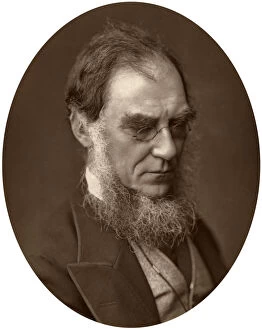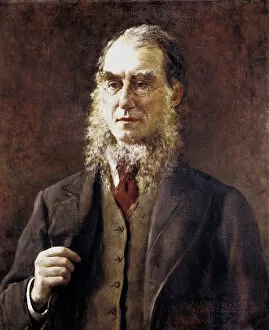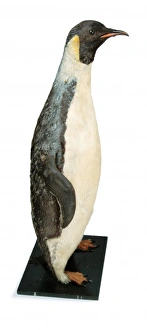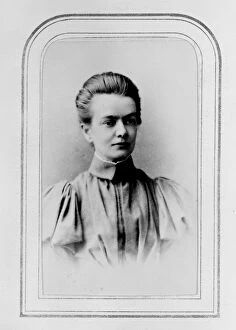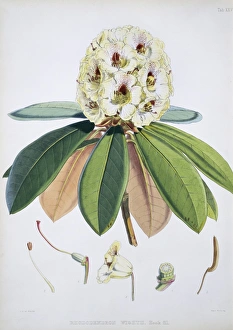Sir Joseph Dalton Hooker Collection
Sir Joseph Dalton Hooker (1817-1911) was a renowned English botanist, plant geographer, and collector
All Professionally Made to Order for Quick Shipping
Sir Joseph Dalton Hooker (1817-1911) was a renowned English botanist, plant geographer, and collector. He is considered one of the Celebrities of the Day in the field of botany. This engraving captures his distinguished appearance as he served as the Director of Royal Gardens at Kew in 1881. Joseph Dalton Hooker's contributions to botanical science are immeasurable. His extensive research and exploration led him to discover numerous species, including Cladhymenia oblongifolia C016 / 5987 and Eucalyptus urnigera. His passion for plants took him on expeditions across the globe, documenting flora from various regions. Not only did Sir Joseph Dalton Hooker excel in his scientific pursuits, but he also had an eye for artistry. The portrait by Lock & Whitfield showcases his dignified demeanor with remarkable precision. Hooker's dedication to his work earned him recognition among fellow scientists and scholars alike. As a Fellow of the Royal Society (F. R. S. ), he became a prominent figure in academia during his time. His legacy extends beyond his scientific achievements; it includes fostering relationships with other notable figures like Matilda Smith (1854-1926), who shared his enthusiasm for botany. In addition to being an esteemed scientist, Sir Joseph Dalton Hooker had a profound appreciation for nature's wonders. One such marvel that captivated him was Aptenodytes fosteri, commonly known as emperor penguin—a testament to his fascination with diverse life forms. Today we remember Sir Joseph Dalton Hooker not only for revolutionizing our understanding of plant life but also for inspiring future generations through his tireless pursuit of knowledge and love for botanical exploration.



